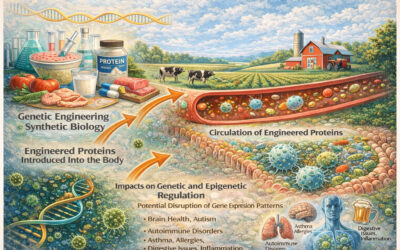By Belinda Martineau, PhD
Some Ag-Biotech history
Twenty years ago, before crops genetically engineered to be herbicide-tolerant were commercially available, one of the big concerns environmentalists had about the use of agricultural biotechnology was that it would lead to “super weeds.” Their apprehension stemmed from biotech products in the industrial pipeline at the time, such as Monsanto’s Roundup Ready® crops, that were impervious to various herbicides like glyphosate, the active ingredient in Roundup®. They pointed out that these herbicide-tolerant crops would encourage over-use of herbicides, which could effectively “select,” from among the weeds being doused with the herbicide, the weeds that could survive; farmers would no longer be able to control those surviving weeds with that particular herbicide and… voilà!… super weeds. (Some crops, such as canola, also are related enough to various weeds that herbicide-tolerant versions of them could produce super weeds simply by breeding with their weedy relatives.)
But other scientists claimed, then and later, that the evolution of glyphosate-tolerant weeds was only a “negligible possibility,” and the US Environmental Protection Agency (EPA) and Department of Agriculture (USDA) allowed commercialization of genetically engineered (GE) Roundup Ready® soybeans, corn, cotton, sugar beets, and alfalfa, as well as canola, anyway.
It took only just over half a decade after Roundup Ready® soybeans were commercialized for a super weed to show up in a Delaware soybean field. And now, when approximately 94% of the soybeans and 89% of the corn and cotton grown in the US are herbicide-tolerant, super weeds have infested millions of acres in at least 22 US states. And “super” versions of, for example, pigweed, horseweed, and giant ragweed that are glyphosate-tolerant are posing problems not only in the US but in agricultural areas of Brazil, Australia, and China as well.
A glimpse at the Ag-Biotech present
This is a serious situation. It means that many farmers, thus far primarily in the midwestern, southern, and eastern US, and to a lesser extent in California and Oregon as well, must spray their fields with more toxic herbicides in their efforts to eliminate weeds. It also limits the use of no-till and low-till farming methods, which reduce erosion and runoff of pesticides and fertilizers into rivers – methods that were originally touted by proponents of herbicide-tolerant crops as a major reason to embrace these GE organisms.
Even Monsanto has now admitted that the development of glyphosate-resistant super weeds is “a serious issue,” although a manager for the company went on to tell The New York Times that he believed this serious issue to be, nevertheless, “manageable.”
History repeats itself
Apparently, however, the primary way that Monsanto and other biotech companies plan to “manage” the super weed “issue” is by developing and commercializing GE crops that are tolerant of additional herbicides, the idea being that such next-generation herbicide-tolerant crops could then be doused with glufosinate or dicamba or 2,4-D (a component of the defoliant Agent Orange used during the Vietnam War), chemicals that should kill the super weeds that Roundup®/glyphosate no longer can.
Environmental scientists have the same qualms now about these next-generation herbicide-tolerant crops as they did about the first GE herbicide-tolerant crops 20 years ago… only now the debate isn’t so hypothetical. We now know, based on the rapid development of glyphosate-tolerant super weeds, that genetically engineering crops to be tolerant of additional herbicides will inevitably lead to more super weeds.
Creating next-generation herbicide-tolerant crops amounts to repeating the same mistake as was made with Roundup Ready® crops in the first place… only this time around the herbicides that will be sprayed with abandon may be more harmful than the developers of Roundup® claimed glyphosate was. Of course, now that the World Health Organization has declared glyphosate a “probable carcinogen,” that herbicide doesn’t seem nearly as “innocuous” as its proponents have often claimed it to be over the last twenty-five years.
Why make the same mistake twice (or three or more times, as Monsanto, Syngenta, and Dow Chemical are all developing next-generation GE herbicide-tolerant crops)? We have already learned that GE herbicide-tolerant crops are not the way to sustainably manage weeds. A more sustainable solution would be to use an integrated pest management (IPM) system and agroecological methods instead.
[For more information on especially Dow Chemical’s 2,4-D-resistant crops, please see “Going Backwards: Dow’s 2,4-D-Resistant Crops and a More Toxic Future,” a publication of the Center for Food Safety.]
© 2015 GMO Science. All Rights Reserved



